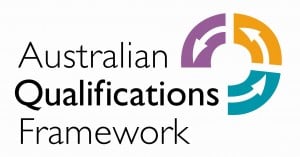Master of Information Systems (CRICOS 112952J)
The Master of Information Systems is to provide a professional qualification in information systems and prepare students to apply their professional knowledge and skills in Information Systems within an industry of their choice. The Master of Information Systems is designed for students with no previous tertiary studies in information technology or information systems, as well as those students who wish to update their qualifications and experience. The course focuses on preparing students for continuing professional development and provide the required skills and knowledge for students to become future digital thinkers and business leaders. Graduates from the Master of Information Systems will be equipped to engage in employment in a varied range of industries and positions. The students will have several career options and some of them are as Business Analyst, Systems Analyst, Information Systems ICT Manager, ICT Consultant etc.,
The Master of Information Systems requires students to complete a total of 16 subjects over 4 trimesters (for full-time students). The eight subjects of the course cover various essential knowledge of important areas of information systems, starting with foundations of business management, foundations of business information systems, programming and database design in the first trimester, followed by development of core skills in business analytics & business intelligence, information systems analysis and design, user experience, and information systems professional practice in the second trimester. The two specialisations (i.e., Business Analytics and Information Security) undertaken in the third and fourth trimesters and other available electives provide students with higher-level and more in-depth knowledge and skills in the Business Analytics, Information Security, and other areas in which they want to focus.
Course Learning Outcomes
- Critically review, synthesise, apply and evaluate contemporary developments in information systems theories and apply this knowledge in the development of complex information systems to enhance organisational performance.
- Communicate information systems solutions effectively to stakeholders to facilitate digital transformation of businesses.
- Apply knowledge of information systems, awareness of recent developments in information systems applications and research principles and processes to identify, analyse and assist in solving information systems problems.
- Display personal autonomy, judgement, decision-making and accountability required for professional practice in information systems.
- Apply skills and knowledge in a professionally responsible and ethical manner.
- Engage in continuing lifelong learning in support of enhanced professional skills and knowledge in the area of information systems.
Delivery Mode
Face to face with blended learning facilities
Subject Credit Points
- 4 Credit Points each subject
Exit Pathways
- Graduate Diploma of Information Systems
POSSIBLE CAREER PATHS
Graduates of the Master of Information Systems find employment in a varied range of industries and positions. Some of the possible career options are as a Business Analyst, Systems Analyst, Information Systems ICT Manager, ICT Consultant etc.,
PATHWAY TO FURTHER STUDIES
Graduates of the Master of Information Systems are eligible to apply for admission into further postgraduate qualifications in Australia and overseas or a PhD.
STUDENT PROFILE
The table in the pop-up window here gives an indication of the likely peer cohort for new students at KOI. It provides data on students that commenced Master of Information Systems study and passed the census date in the most relevant recent intake period for which data are available, including those admitted through all offer rounds, across all Australian campuses, and international students studying in Australia.
ATAR PROFILE
The table in the pop-up window here gives ATAR profile for those offered places wholly or partly on the basis of ATAR in Trimester 1, 2025
ADMISSION REQUIREMENTS
General admission criteria apply to the course.
Course Conditions:
To be permitted to enrol in this course:
An Australian bachelor degree, or equivalent, in any field, with at least a 55% average, or a graduate certificate in information systems or equivalent, or a graduate diploma in information systems or equivalent. This course planner assumes no Recognition of Prior Learning (RPL) has been approved and all subjects will be passed.Should either of these circumstances change, the course planner will need to be carefully planned to take into account pre-requisite subjects and available timeframes.
The subjects in the dark shaded boxes cannot be changed.



